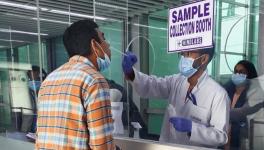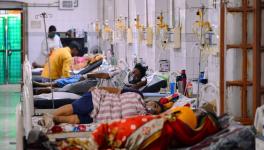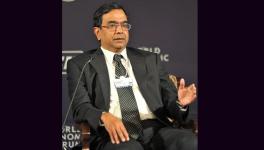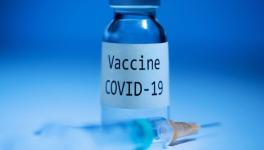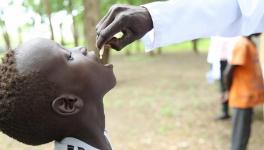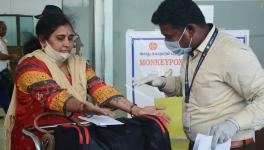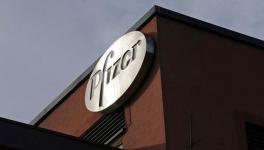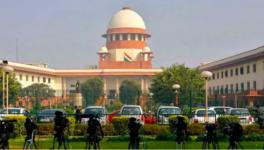Why is TN’s Rs 600-Crore Vaccine Facility Lying Idle After a Decade?
Representational use only.
New Delhi: At a time when there is crying need for more and more vaccines to tackle the raging COVID-19 pandemic, India’s very own vaccine-making facilities are lying idle, crying for attention from the government.
Tamil Nadu’s Integrated Vaccine Complex (IVC), a plant that could have massively helped in manufacturing of COVID-19 vaccines, has been lying idle for nine years, according to reports. The plant, located in Chengalpattu, an hour’s drive from Chennai, has state-of-the-art facilities. The Congress-led United Progressive Alliance (UPA) government in 2012 gave the nod for the facility to be set up over 100 acres of land.
The facility was meant to be the nodal centre for manufacturing, research and supply of vaccines at affordable prices under the Universal Immunisation Programme (UIP) of the Government of India. It was to produce vaccines against rabies, measles, Japanese Encephalitis, and Hepatitis B among other diseases, with a total capacity of 585 million doses.
According to The Print, the locals remain unaware of the purpose of the building. HLL Biotech Limited (HBL), a 100% subsidiary of HLL Lifecare Limited, a Government of India Enterprise under the Ministry of Health and Family Welfare, was tasked with setting up and running the IVC.
However, the facility never became fully functional. The building, sprawled across a large 100 acre plot, continues to remain deserted almost a decade after its construction. From July, 2019, HBL started struggling to pay full salaries to its employees, even though only 174 people were on the rolls.
In November, 2019, there were rumours that the government was considering bringing in a
in public-private partnership (PPP) mode to revive the Rs 600-crore IVC, which was struggling with a cash crunch and non-viability issues. This plan did not come to fruition either. HLL Biotech in February, 2020, gave its employees the option of joining the parent HLL Lifecare on a temporary basis in any of its units across India.
S Kannan, state secretary of Centre of Indian Trade Unions (CITU) had earlier told NewsClick, "HBL was started as a project of national importance and dropping the project citing the excess sum of Rs 310 crore requested by HBL is very unfortunate. If the government cites time overlay and cost overlay, the union government is the one to be held responsible and not the organisation alone. When HBL wrote to the ministry in April 2017 requesting an additional amount of Rs 116.06 crore, the ministry found time to reply only in June 2018".
A public interest litigation petition was filed in the Madras High Court in April 2020, seeking a direction to the Centre as well as the State government to utilise the services of an Integrated Vaccines Complex (IVC) at Chengalpattu in the fight against COVID-19. The facility, which had been declared a ‘Project of National Importance’ has not only been non-functional, but only contributed to the national effort against COVID-19 by manufacturing hand sanitisers.
HBL recently invited expressions of interest from vaccine manufacturers to run the facility on an ‘as is where is basis’ (Indian courts hold that whatever be the condition of the property on the spot, it shall be sold in the same condition).
To apply, companies needed to have an annual turnover of Rs 500 crore or above for the last three years and a net worth of a minimum of Rs 300 crore. But like all other attempts at rescuing the plant, there has not been much progress in the direction, though sources in the central government told The Print that the likes of Bharat Biotech and Biocon have expressed interest.
It may be recalled that in 2009, too, the Supreme Court had sent a notice to the Centre to rethink its decision to halt production in three public sector vaccine-making units -- Central Research Institute (CRI), Kasauli, Pasteur Institute of India (PII), Coonoor, and BCG Vaccines Lab (BCGVL), Chennai.
The apex court had raised concerns and so did a scathing parliamentary panel report on how such a decision by the Centre could lead to potential vaccine shortages and price hikes, if such a vital business was left only in private hands.
Get the latest reports & analysis with people's perspective on Protests, movements & deep analytical videos, discussions of the current affairs in your Telegram app. Subscribe to NewsClick's Telegram channel & get Real-Time updates on stories, as they get published on our website.









